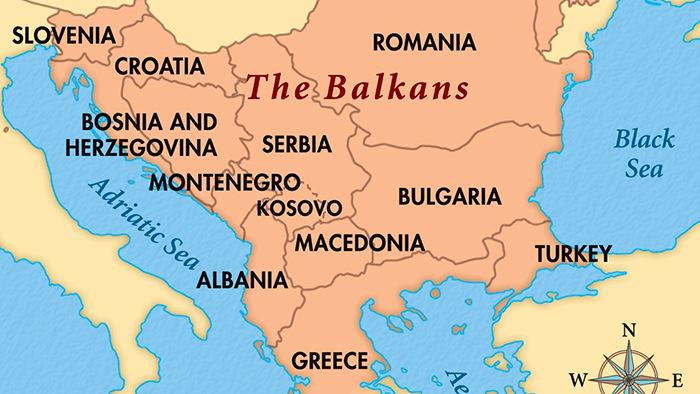The descendants of Jews who were expelled from Spain in 1492 or earlier are known as Eastern Sephardim. This subgroup of Sephardim primarily settled in the Balkans in Southeast Europe and the Near East (West Asia’s Middle East, including Anatolia, the Levant, and Egypt) during the Ottoman Empire. They concentrated their settlements in the Ottoman Empire’s European capital cities, such as Salonica in what is now Greece, Istanbul in what is now Turkey’s European section, and Sarajevo in what is now Bosnia and Herzegovina.
Bulgaria was home to Sephardic Jews as well, who assimilated any Romaniote Jews they came across and welcomed them into their community. They also had a presence in the region of Walachia, which is now southern Romania and still has a functioning Sephardic synagogue. The name Judezmo refers to their native tongue (“Jewish [language]”). It is called Judaeo-Spanish, also referred to as Ladino, and was created by combining the medieval Iberian Spanish and Portuguese that they spoke with elements of Hebrew and the nearby languages, particularly Turkish. The Rashi script was frequently used to write this Judeo-Spanish language.
Some Sephardim traveled further east to the Ottoman Empire’s West Asian provinces, where they settled among the long-established Arabic-speaking Jewish communities in the Syrian cities of Damascus and Aleppo, as well as in the Land of Israel and as far as Baghdad in Iraq. Due to Egypt’s close cultural ties to the West Asian provinces, even though legally Egypt was an Ottoman province of North Africa, this group included the Jews who settled Alexandria.
Most often, Jews who were Eastern Sephardim did not keep their own distinct Sephardic religious and cultural organizations. Instead, the local Jews began to embrace the new Sephardic immigrants’ liturgical practices. Eastern Sephardim in the Ottoman Empire’s European provinces, as well as in Palestine, did maintain their culture and language, but those in the other West Asian regions abandoned it in favor of the regional Judeo-Arabic vernacular. One of the things that has contributed to the greater religious definition of Sephardi today is this latter phenomenon.
As a result, the Jewish populations of Lebanon, Syria, and Egypt are considered to be Sephardim in the traditional sense and are of Spanish Jewish ancestry. All of the Jewish communities in Iran, Eastern Syria, Yemen, and Eastern Turkey, as well as the vast majority of Jewish communities in Iraq, are descended from earlier indigenous Jewish populations. They are correctly referred to as Mizrahi Jews because they adopted Sephardic rites and traditions through cultural dispersion.
These classifications have been confirmed by recent DNA testing. For instance, Syrian Jews are more closely related to their Sephardim proper counterparts in other regions of Sephardic settlement than they are to the Mizrahi Jews who are geographically closest to them, despite the fact that they cluster within the various world Jewish groups (where most Jewish groups cluster closely together at large compared to non-Jews).
A small number of Eastern Sephardim settled among the long-established Cochin Jewish community after traveling the spice trade routes as far as the Malabar coast in southern India. The local Jews adopted their culture and traditions. In the Portuguese colony of Goa, there was also a sizable Jewish and crypto-Jewish population of Portuguese descent. The first archbishop of Goa, Gaspar Jorge de Leo Pereira, called for the start of the Goa Inquisition against the Sephardic Jews in India in order to suppress or drive out that population.
Most Eastern Sephardim have moved to Israel in recent years—primarily after 1948—while others have gone to the US and Latin America.
Eastern Sephardim continue to frequently use common Spanish surnames, as well as other distinctively Sephardic surnames from 15th-century Spain with Arabic or Hebrew language origins (such as Azoulay, Abulafia, and Abravanel), which have since vanished from Spain as conversos adopted surnames that were exclusively Spanish in origin. Since then, other Eastern Sephardim have done the same with their Hispanic surnames, either translating them into the native tongues of the places they have settled or altering them to sound more regional.








Ohr HaChaim Yomi – Emor